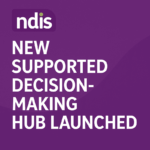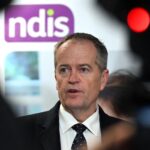In a recent turn of events surrounding the National Disability Insurance Scheme (NDIS), concerns are mounting that participants may soon have to shoulder the costs of a proposed mandatory needs assessment test. This assessment, intended to determine the level of support each individual requires, could introduce unforeseen financial challenges for people with disabilities, drawing criticism from advocacy groups and opposition leaders.
The federal government is exploring the implementation of a new needs assessment tool as part of broader reforms to the NDIS. This tool is designed to shift the current focus away from medical diagnoses as the primary basis for funding decisions, with the goal of streamlining the process and potentially offering more adaptable funding options. However, key details about the tool’s rollout remain unclear, particularly regarding who will bear the cost of these assessments.
During recent Senate discussions, it was revealed that the government has not yet decided whether it will cover the costs of these assessments or if the financial responsibility will fall on participants. This ambiguity has led to frustration among disability advocacy groups, who were not informed about the potential costs during earlier consultations on the reforms.
Ross Joyce, CEO of the Australian Federation of Disability Organisations, has criticized the government for its lack of transparency and engagement. He argues that placing the financial burden of assessments on participants, which could range from hundreds to thousands of dollars, is not only unjust but could also pose a significant barrier for those already facing economic hardships.
Equity and Accessibility at Risk
The possibility of introducing fees for needs assessments has been met with strong opposition, with Greens Senator Jordon Steele-John likening it to an “application fee” to access the NDIS. He contends that such fees could create a significant obstacle for many individuals with disabilities, potentially preventing them from obtaining essential services.
The concerns are further exacerbated by the fact that the final design of the needs assessment tool will not be completed until after the legislation is passed. This delay has intensified fears about the potential financial impact on participants, who may be left in a precarious position regarding the costs associated with accessing necessary support.
Government’s Stance and Future Actions
Finance Minister Katy Gallagher has indicated that negotiations on NDIS reform are nearing conclusion, with a focus on capping the scheme’s annual growth and revising eligibility criteria. However, the issue of how the needs assessments will be funded remains unresolved. Minister for the NDIS, Bill Shorten, has acknowledged the need for further dialogue with the disability community to finalize the assessment process, including its funding structure.
Shorten emphasized that the government is committed to managing the rising costs of the NDIS, which are projected to reach $50 billion annually by 2025/26. The proposed reforms aim to ensure the sustainability of the scheme while managing expenditures. However, this objective must be carefully balanced against the need to avoid placing additional financial burdens on participants.
Urgent Call for Clarity
There is a pressing need for the government to provide clear guidance on this issue. Disability advocates are urging the suspension of the legislative process until there is a firm commitment that the costs of mandatory needs assessments will be borne by the government, not the participants.
Without such assurances, the proposed reforms risk exacerbating the financial difficulties faced by people with disabilities, potentially undermining the NDIS’s core mission of support and equity.
Conclusion
As the debate over the proposed NDIS needs assessment tool intensifies, the potential financial implications for participants remain a critical concern. The government’s silence on whether these costs will be passed on to individuals with disabilities has sparked widespread apprehension and criticism.
With the future of the NDIS at a crossroads, it is imperative that the government addresses these concerns promptly and transparently.
Ensuring that the scheme remains both sustainable and equitable should be the primary focus, but this must not come at the expense of those it is designed to support. Clear communication and a commitment to shielding participants from additional financial burdens will be essential to maintaining trust in the NDIS and its mission to provide fair and accessible support for all Australians living with disabilities.
Indepth Article Featured On ABC








